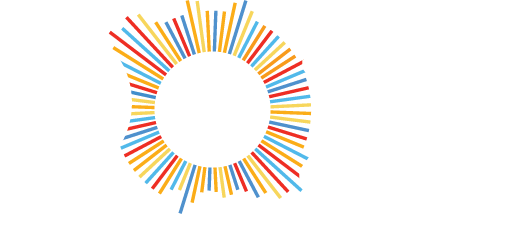
Bendigo & District Aboriginal Cooperative Smoking Ceremony at Malmsbury Camp
For those of you who don’t know me, my name is Taylah Jones and I am a proud Palawa women. I am currently in my final year of my Bachelor of Arts at Melbourne University majoring in Criminology and Sociology. I have been a part of the Doxa family going on five years now. First as a cadet and now I’m also an employee in the Partnerships & Corporate Affairs team, working on Doxa’s Reconciliation Action Plan or RAP.
“In this time, I have seen and experienced the amazing work that Doxa does for young people in our community, and now I am proud to say that we are working towards reconciliation with the community in the development of our first ever RAP.”
What is a RAP?
A Reconciliation Action Plan (RAP) is a formal statement of commitment to reconciliation. There are four different types of RAP; Reflect, Innovate, Stretch and Elevate. Even though we are still in the developmental stages our first RAP, Reconciliation Australia has advised us to move from a ‘reflect’ RAP to an ‘innovate’ RAP. Although this may seem like a small feat it is cause for celebration. This advancement marks Doxa’s first accomplishment in reconciliation. We have observed and evaluated our level of cultural competency and have acknowledged that significant work needs to be done at Doxa to welcome more ATSI staff and program participants, increase our collective knowledge and to push for reconciliation within our sphere of influence.

Program Participants at our Malmsbury camp
Why do we need a RAP?
In the five years that I have been with Doxa I have been able to experience both sides of the company, as both a program participant and an employee. Being the first Aboriginal and/or Torres Strait Islander Program participant, and one of the only current Aboriginal and/or Torres Strait Islander employees I have felt relatively alone at Doxa.
“With no representation and little understanding of my culture, I will be honest and say that at times I have found it tough to find that sense of belonging that some of my peers have benefited from.”
I acknowledge that some gestures have been made at Doxa to change this but it’s important that these are done with good intention and genuine commitment to reconciliation and are not merely tokenistic. Tokenism is something we see a lot of in society and it’s not helpful. That’s why we need a RAP. By committing to a RAP, Doxa is committing to becoming an environment where Aboriginal and/or Torres Strait Islander young peoples feel welcome, safe and valued, with our culture recognised, understood and celebrated. And that’s a really important place to be.

Doxa is working towards ensuring that Indigenous young peoples feel safe and supported
Our journey so far
While our RAP is still in the developmental stages, it has already had an immense impact upon the organisation. We have been able to implement changes and raise awareness about not only Doxa’s but our staff and participants cultural . Cultural awareness training for all staff has been booked and has already started the conversations around reconciliation. Staff have also stated that they have been engaging in conversations and activities with Aboriginal and/or Torres Strait Islander peoples outside of work.
“While this may not seem like much, a conversation is where true reconciliation must begin.”
In creating and committing to a RAP Doxa has taken that first step towards reconciliation. Now, our journey is well underway and those first few steps have started us on our march, with each step paving the way for others to follow.
